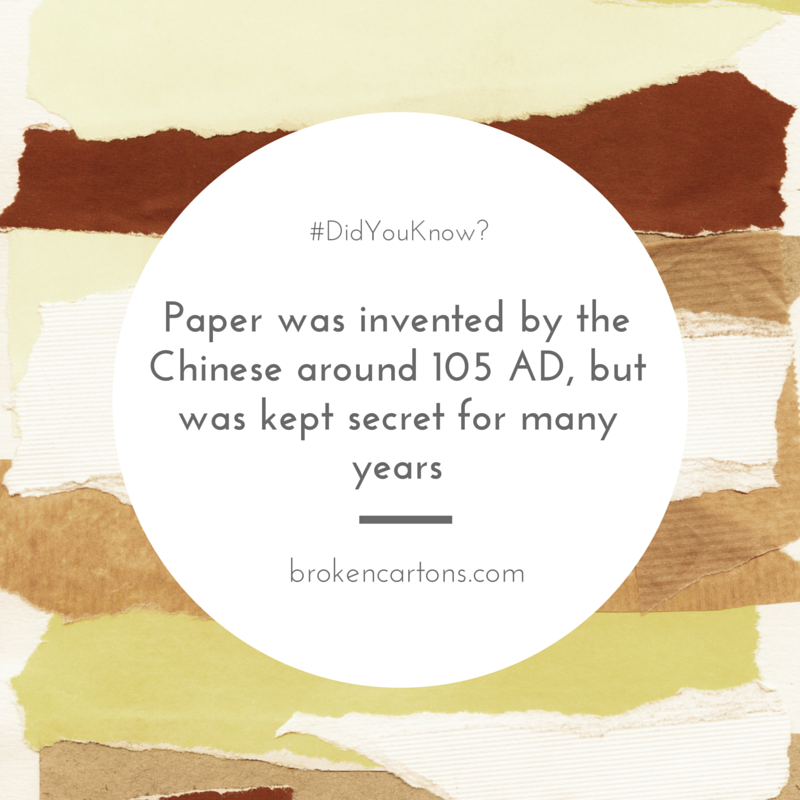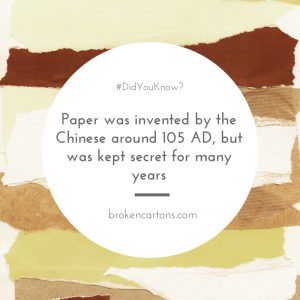
In 1455 A.D., Johannes Gutenberg invented the first mechanical printing press. With the creation of the press came the rise of illuminated manuscripts, and soon, universities. The press created a way of mass communication like no other, and began breaking the language border between countries. This way of mass communication allowed us to collaborate, educate, cooperate, and most importantly; communicate. The printing press started out printing on parchment, which soon turned into paper, otherwise known as “cloth parchment” at the time. Before the printing press, however, how did we spread ideas? Cave paintings. Imagine, hundreds of thousands of years later having to communicate to a large amount of people solely through art? Where would we be technologically and educationally without the printing press? But more importantly, where would we be without paper?
Paper was first developed from rags, hemp, nets, and China grass. The pulp paper making process was said to have developed in China during the 2nd Century A.D., otherwise known as the Han dynasty. Paper spread from China throughout the Middle East, then to Europe by the 13th century, where the first water powered paper mills were eventually built. With the creation of paper came a substitution for silk in many applications. Now, China could export silk in greater quantities. The creation of paper in the early 2nd century contributed greatly to the start of the Golden Age.
Paper gave, and continues to give, people a way to spread new thoughts and ideas. With the creation of the printing press, publications began to echo enlightened thoughts. Most people don’t consider this, but spoken verbal language is technology. When you change from an oral culture to a literature culture, all of the fundamentals change. And without paper, we would have no other way to communicate our thoughts. Writing on paper clears the mind so we don’t have to remember everything. With paper, we can continue to think and learn more. We live in a world that paper and the printing press helped to create. Paper invented the way we communicate things like news, record art and history, like the Declaration of Independence, write down literature, produce currency, and so much more. It is small and portable, and has triggered the inventions of many other products throughout history, and continues to today. Most of the world was transformed by the development of paper. Close your eyes for a moment and imagine a world without paper. It is then that you will truly understand the value and importance of paper.


Leave a Reply
You must be logged in to post a comment.